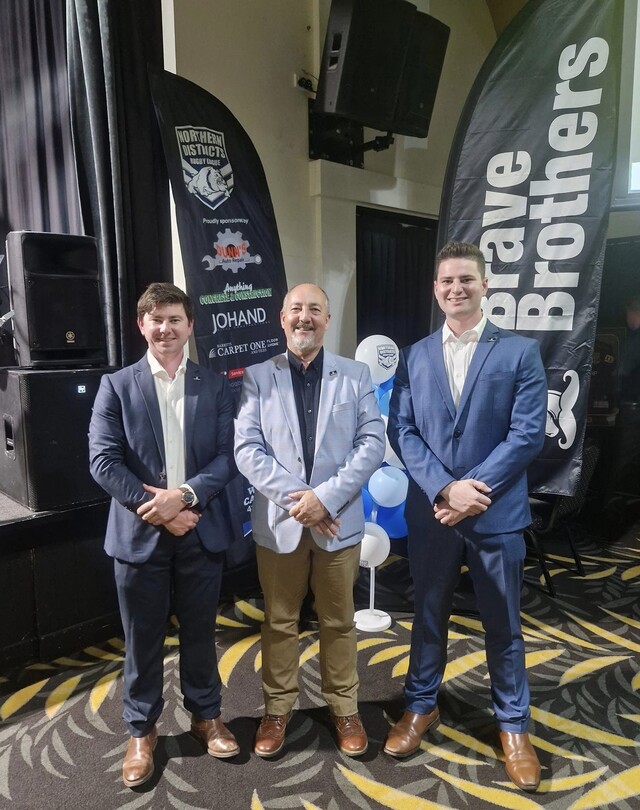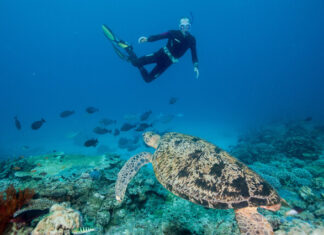From an idea of founder/director David Facer and a commitment to change, Brave Brothers has now become a well-known name throughout the Bundaberg region.
Having had many years of experience in the field, David was very conscious of the high rates of suicide in the community and wanted to engage with men who often consider this as a solution to dealing with difficulties in the areas of family and domestic violence, cancers and health related issues also seemed like a good start.
David said focussing on education and connection opportunities for these cohorts seemed a positive approach to reduce suicide.
“Through Brave Brothers we encourage a lead by example model where team members exemplify positive masculinity in their actions and interactions while recognising members who demonstrate positive masculinity,” he said.
“We are also prepared to call out negative behaviours and aware that at time we must stand up and speak out.
“We follow this through with workplace barbecues and other community events and a coffee van that offers coffee, compassion and conversation as these foster a sense of community and belonging, helping men build stronger social networks.
“This support system can be crucial for emotional well-being.
“Our social gatherings endeavour to normalise the act of sharing feelings, reducing the stigma around expressing emotions and seeking help.
“Opportunities to talk openly in a relaxed setting often alleviate stress, anxiety, and depression, leading to better overall mental health and they also give a sense of purpose.
“Participating in and organising such events gives men a sense of purpose and responsibility, contributing positively to their self-esteem and well-being.
“It can also set a great example, encouraging others to do the same and creating a ripple effect of emotional openness.”
One such event where David and his fellow Brave Brothers saw positive masculinity at work was the Deadlift for Harry event at World Gym Bundaberg, where another Brave Place Safe Space was also launched.
“Powerlifting requires intense training, discipline, and dedication and athletes in this sport often develop a deep respect for the effort it takes to excel, the community often emphasises support and camaraderie encouraging each other, share tips, and celebrate each other’s achievements, creating an environment where humility is valued.
“To be successful in powerlifting, athletes must prioritise their overall health, including nutrition, recovery, and mental well-being.
“This holistic approach to fitness can also lead to a balanced perspective and humility.
“I have also found as a Rotarian, I am led by a simple principle of the four-way test of the things we think say or do asking is it the truth, is it fair to all concerned, will it build goodwill and better friendships and will it be beneficial to all concerned and these principles fit well with Brave Brothers.”
For David though, in all he does he considers his two sons who he is very proud of.
“As a family we have nurtured the building of resilience through setting boundaries encouraging communication, friendships and relationships, team sports, adventure and importantly independence all wrapped in love.
“They have been great directors of Brave Brothers. I’ve learned more from them than I could have imagined.
“Our relationships are multi-faceted. We are good mates but, most importantly, I’m their dad and still pull rank at the barbecue.
“Encouraging positive masculinity in the community and schools involves a strategic approach that includes education, role modelling, support systems, and community engagement.
“We would be keen to develop educational workshops on topics like emotional intelligence, healthy relationships, suicide prevention and mental health, to include programs that teach soft skills such as communication, empathy, and conflict resolution.
“Develop Awareness Campaigns that challenge traditional stereotypes and promote positive representations of masculinity.
“Highlight role models that are not sports stars or celebrities by showcasing stories of everyday men who demonstrate positive masculinity in overcoming adversity to live everyday happy lives in local media and community platforms.”
Asked to define what he considers a ‘real man’ for David isn’t easy though, despite his considerable time out in the community.
“A real man embraces emotions, shows respect and kindness, values integrity and responsibility, promotes equality, prioritises health and well-being, leads with strength and compassion, serves as a positive role model, engages in his community, balances family, work and independence with cooperation, and champions for those less able than him.
“He also needs to be able to laugh at himself when things don’t go his way.”









